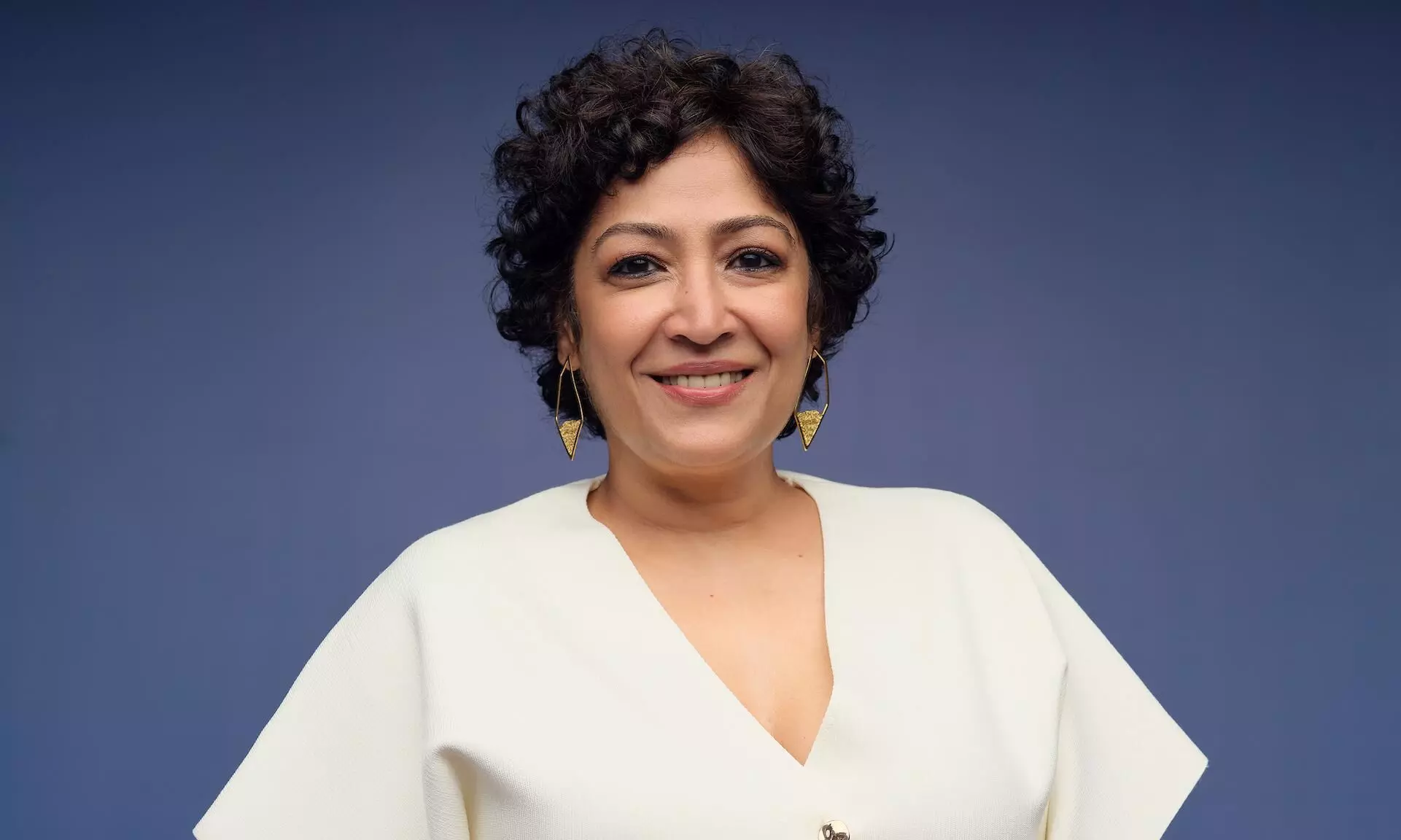Editing is meditative: Deepa Bhatia
The ‘First Act’ director and ‘My Name is Khan’ editor has been one of BAFTA’s ‘Exceptional Breakthrough Talents’

Deepa Bhatia has had a remarkable career as an editor in Indian cinema. She has worked with renowned filmmakers like Govind Nihalani (‘Dev’, ‘Hazaar Chaurasi Ki Maa’) and Jahnu Barua (‘Maine Gandhi Ko Nahi Mara’, ‘Har Pall’), as well as on popular films such as ‘My Name is Khan’, ‘Taare Zameen Par, Rock On!’, ‘Student of the Year’ and ‘Kai Po Che’. Her directorial debut, the docuseries ‘First Act’ on ‘Amazon Prime Video’, was widely praised. This year, Bhatia has been named BAFTA’s ‘Exceptional Breakthrough Talent’, a prestigious recognition of her creative journey. From the excitement of being part of the programme to her upcoming projects, ‘Millennium Post’ chats with her.
You have been selected for 2024’s ‘BAFTA Breakthrough India’ programme. Excited?
It’s a big opportunity to improve your knowledge and exchange ideas and information with people who may have done something you aspire to do. I’ve been here for a long time editing. When you are an editor and nurturing other people's vision, it becomes a way of life. It’s almost like parenting in some sense and then somewhere along the way, you realise you had a dream of your own too. I was trying to find the filmmaker in me to express myself when this happened. I’m looking to move more and more from editing to filmmaking and I’m writing and developing two of my own scripts. So, I’m hoping this programme helps me in some areas.
Your documentary ‘First Act’ explores the uncertainties and challenges faced by child actors. How did the idea come to you?
I’d say it was a little after ‘Taare Zameen Par’. The film was made like films are made in the business. But somewhere, when we came out of that experience, both my husband, Amol Palekar (creative director and screenwriter of ‘Taare Zameen Par’) and I felt we should look at how the West deals with children on sets. When we shot ‘Stanley Ka Dabba’ in 2011, he said, “I don’t want any child to ever miss school because of a film.” So, he shot just on Saturdays, not even Sundays, because Sunday children need to rest and we shot only four hours with two breaks. I never looked at the rushes of ‘Stanley Ka Dabba’ for nearly five to six months because I was very afraid of what was going to come out of this very experimental approach. I was editing ‘My Name Is Khan’ at exactly the same time. When I finally gathered the courage and looked at the material that Amol was gathering, I thought this was good and I realised that it’s really nice when children are left to their own devices. When they’re kept safe, happy and comfortable, you get magic. It was proof to us that you can make something while keeping the well-being of children at the center and it’s doable.
But has there been any change in how the industry treats child actors?
When I started ‘First Act’, I really hoped it would be different. During my research, I’d go to film and TV show sets and always thought there should be an ecosystem for child actors too. I don’t think it’s gotten significantly better. It’s better with the bigger production houses -they are more careful of sure - but in general, where it’s just content, I’m not very happy with what I see.
There are some parents who push their kids into the industry for their own gain, even if it’s against the child’s wishes.
Yes, absolutely. It extends from film and television to social media, which is very ungoverned and unregulated. If you search on ‘Instagram’, you will see parents of very young children putting out very disturbing images with notifications for collaborations. The child has no voice.
What’s next for you?
I’m working on P Sainath’s book ‘Last Heroes: The Foot Soldiers of Indian Freedom’. I’m working on a sort of fictionalised adaptation of that book and that’s what is taking up all my time and energy. There’s another script that I’m in the research process for.
Cut Short
With you coming in direction, will editing take a backseat now?
I don’t think I can ever stop editing because it’s what I love. My husband always jokes when I fall sick. He tells me to go and edit because, for me, editing is meditative. I’ve edited the documentary ‘Yo Yo Honey Singh: Famous’. I’ve edited ‘Agni’ for Rahul Dholakia. So, I won’t ever stop editing. It’s just that I curate my projects more carefully. I’m 50 now. I want to do meaningful things.
Most of the time, editors are addressing issues that arise from weak writing. Agree?
Yes. Most of the time, we are addressing problems that come out of poor writing. In my case, I always read the script at each stage of development. I won’t complain because I’ve been lucky to get the kind of projects I have. I’ve worked with some of the finest filmmakers and producers. But otherwise, it does happen.



